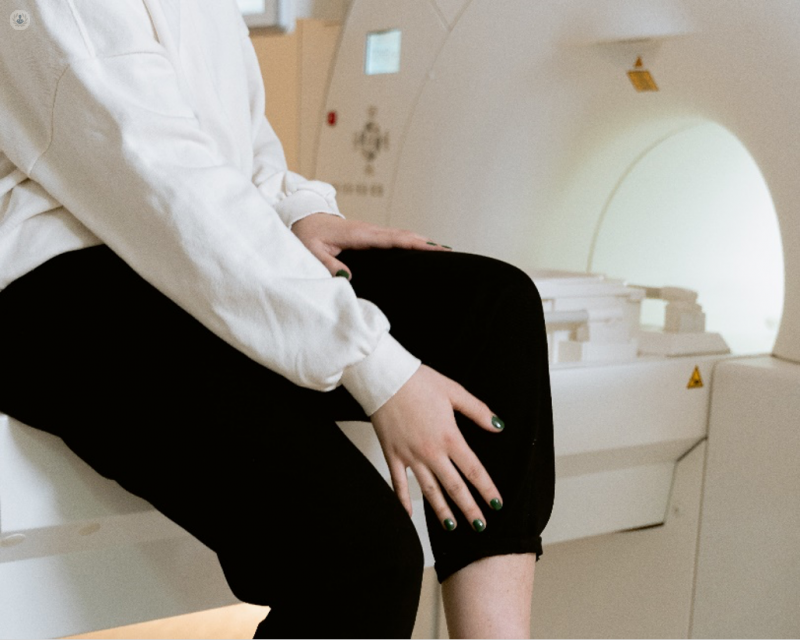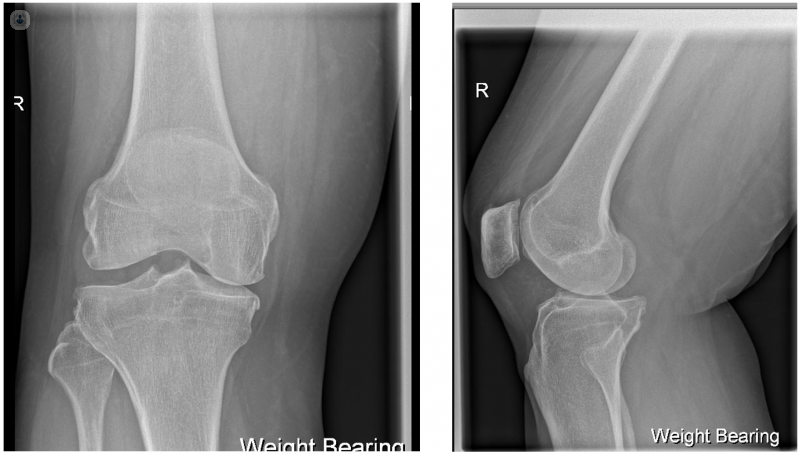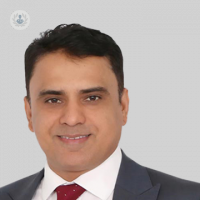Do I need a partial or total knee replacement?
Written by:Knee replacement surgery is necessary when the knee joint is damaged or worn, when there is reduced mobility and often even pain whilst resting. For those with severe osteoarthritis, who have already tried other treatments, the question may arise—'am I going to need a partial or a total knee replacement?’

We spoke with Mr Ash Gulati, a highly regarded specialist hip and knee surgeon based in Droitwich and Birmingham, to find out how the type of procedure is chosen. We discussed the importance of having scans prior to surgery and found out what the success rates of partial and total knee replacement are.
How should my specialist decide whether partial knee or total knee replacement is required?
The results of partial knee replacement depend on the careful selection of patients. There are a number of ways specialists decide whether partial knee or total knee replacement is required. There is no substitute for a full detailed history and thorough examination. The exact location of pain and tenderness is an absolutely vital piece of information. In addition, the integrity of anterior cruciate ligament and other structures are tested during physical examination. Often, good quality front and side view radiographs (x-rays’) of the knee provide valuable information.

The traditional method to quantify arthritis is from Grade 0-4, Grade 0 being no arthritis and Grade 4 means being severe arthritis with bone touching the bone. MRI scan is sometimes performed to confirm bone on bone arthritis in the affected compartment and also quantify cartilage damage in other compartments.
MRI also helps to confirm the structural integrity of ACL and rule out any other pathology. Some centres perform stress radiographs for the same reasons. Very rarely, a knee arthroscopy is performed but, more often than not, it is performed for other reasons and patients are found to have bone-on-bone arthritis.
What are the success rates of partial knee replacement and total knee replacement?
There are various ways to assess the outcome after a knee joint replacement. These mainly include: survival analysis, outcome scores and radiological assessments.
The National Joint Registry (NJR) collects details of all knee replacements done in England, Wales, Northern Ireland and the Isle of Man. The failure rate of joint replacements is recorded as a cumulative revision rate, which in simple language means ‘a chance of having further surgery or the implant failing’.
For partial knee replacements , the failure rate is about 7-10% at 10 years, depending on the type of implant used and several other factors. The progression of arthritis to the other side of the knee is considered to be a main cause for failure, although it is not always the case. Patient selection and meticulous surgical technique are, therefore, paramount to ensure successful outcome after a partial knee replacement.
In terms of patient reported outcome measures (PROMS), patients having partial knee replacements are 1.6 times more likely to achieve excellent results and 1.3 times more likely to be highly satisfied than those who had undergone total knee replacement.
If you’re currently experiencing issues with your knee, you may like to chat with a renowned consultant trauma and orthopaedic surgeon such as Mr Ash Gulati. Click here to visit his Top Doctors profile today.


